 As expected with the time-based releases, Buildroot 2011.05 has been released just a few days ago. We have already published many blog posts about Buildroot, but to summarize for our new readers, Buildroot is a tool that automates and simplifies the process of building an embedded Linux system. You define your system configuration and components in a menuconfig/xconfig interface similar to the one the kernel uses, then hit
As expected with the time-based releases, Buildroot 2011.05 has been released just a few days ago. We have already published many blog posts about Buildroot, but to summarize for our new readers, Buildroot is a tool that automates and simplifies the process of building an embedded Linux system. You define your system configuration and components in a menuconfig/xconfig interface similar to the one the kernel uses, then hit make, wait a bit, and you have your embedded Linux system ready to run on your device. At Bootlin, we appreciate the simplicity of Buildroot, and many of our customers also appreciate it for the same reason. Of course, we also contribute significantly to Buildroot and we have started a commercial support offering on Buildroot.
The 2011.05 release
The 2011.05 release cycle was a little bit more quiet than usual, so the number of new features or major changes is not as large as it was for past releases. Amongst the interesting things:
- Until now, Buildroot was only capable of building systems using a static
/dev, in which device files are statically listed in a device table and created at system build time. The 2011.05 has added a configuration option to select how the/devdirectory on the target should be handled. It can be handled in four different ways:- with a static
/dev, just as before - with just
devtmpfs. It allows to have a dynamic/devwithout any other userspace components, which is really nice. - with
devtmpfsandmdev. In addition to having a dynamic/dev, it allows allows to execute arbitrary scripts when device are added/removed and to customize the owner, group and permissions for the device files. - with
devtmpfsandudev. This is the full solution, as used in desktop distributions.
- with a static
- There has been an internal infrastructure change on support for external toolchains, and this change will make those toolchains slightly easier to use. In Buildroot terminology, an external toolchain is a toolchain that hasn’t been built by Buildroot, but which Buildroot uses to compile code for the target platform. It allows to re-use existing toolchains such as the CodeSourcery toolchains, or toolchains generated externally with Crosstool-NG. To support those toolchains, we rely on the sysroot mechanism that the GCC compiler provides since the 4.x era. This mechanism allows Buildroot to make a complete copy of the C library binaries, C library headers and kernel headers into a staging directory, and then tell the toolchain utility (compiler, linker, etc.) to use this new directory as their sysroot. This means that a
--sysrootoption needs to be passed at every invocation of those tools. As this was not very convenient, especially to use the Buildroot toolchain as a SDK to build applications not packaged in Buildroot, the 2011.05 has added wrappers for the toolchain tools, which makes this completely transparent. So one can now just use$(O)/host/usr/bin/arm-linux-gccas usual, and it will do the right thing. - A few new packages have been added: bonnie++ (a block device benchmark), can-utils (userspace utilities for the famous industrial CAN bus), gdisk (a sort of fdisk program, but for the new GPT partition table format), htop (a nice top alternative to watch the activity of processes), input-event-daemon (a simple daemon that executes arbitrary command in reaction to input events), libexif (a library to read the contents of EXIF tags in pictures), libraw (a library to decode pictures in various RAW formats), libv4l (the library to interact with Video4Linux devices), ngircd (an IRC server).
- Many packages have been upgraded: the Gtk stack, the U-Boot and Barebox bootloaders and the internal toolchain components (gcc and uClibc), with experimental gcc 4.6 support.
Buildroot in the Linux Journal
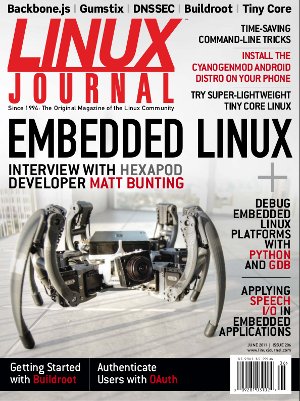 The Linux Journal has published an issue, numbered 206, dedicated to Embedded Linux. This issue has several articles around Embedded Linux related topics:
The Linux Journal has published an issue, numbered 206, dedicated to Embedded Linux. This issue has several articles around Embedded Linux related topics:
- Hexapod, a Linux powered robot
- Debugging Embedded Linux platforms with Python and GDB
- Breaking free the Gumstix DSP
- Speech I/O for Embedded Applications
- CyanogenMod 7.0, Gingerbread in the house
- Tiny Core Linux
- Roll your own Embedded Linux System with Buildroot, written by Alexander Sirotkin, which gives a good introduction to what Buildroot is and how to use it.
It is great to see articles about Buildroot in a such widely read magazine, and it should definitely help increasing the awareness about this build system.
Buildroot used by Fabrice Bellard in jslinux
In May, the famous developer Fabrice Bellard (known as the initial author of ffmpeg, qemu, but also for his records for the computation of pi) has released an impressive new project: an x86 emulator completely written in Javascript, which runs in a Web browser. This emulator is sufficiently capable and powerful to boot a Linux system. And the good news is that the Linux system that Fabrice Bellard is using for the demonstration was generated with Buildroot, as Bellard says in his technical notes about the project.

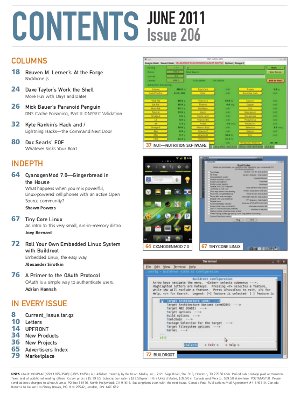
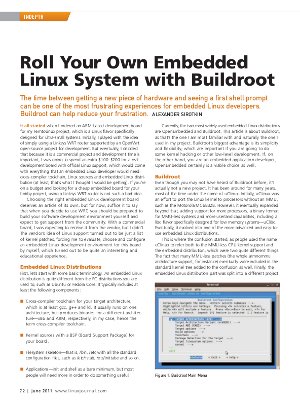
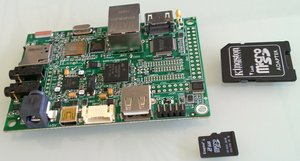

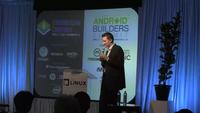


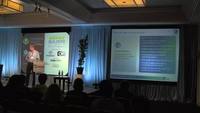
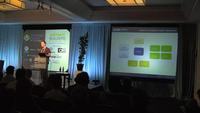
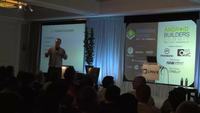
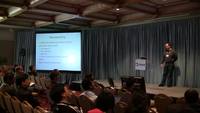
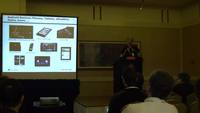
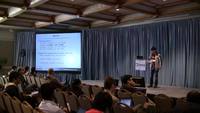
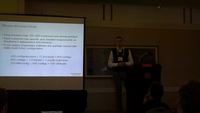
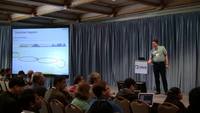
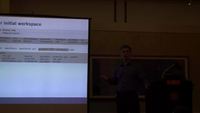

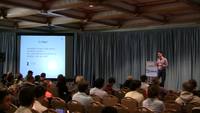
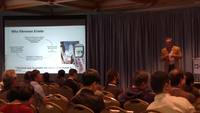
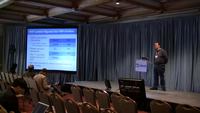
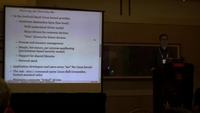
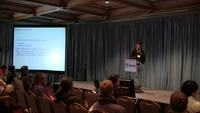
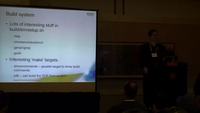
 In agreement with the speakers, these videos are released under the terms of the
In agreement with the speakers, these videos are released under the terms of the 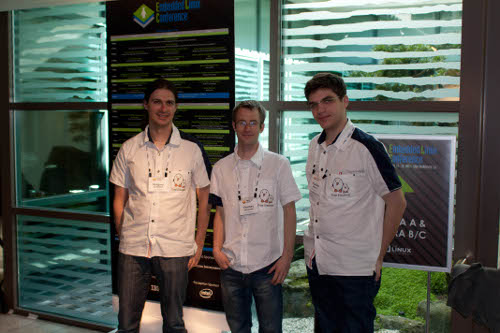
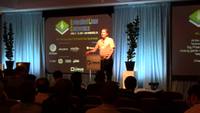
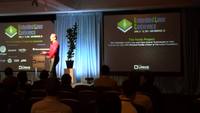
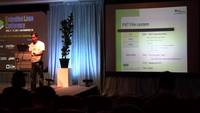
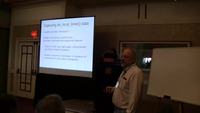
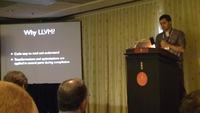
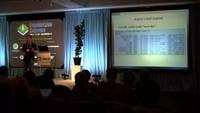
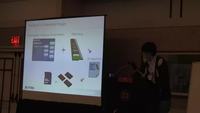
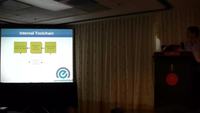
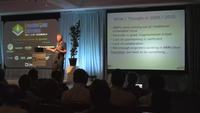
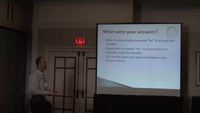
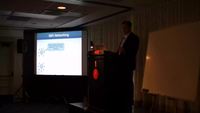
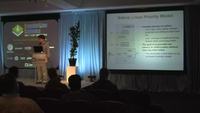
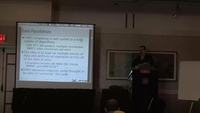
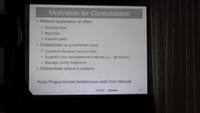
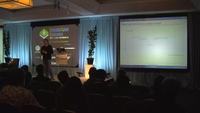
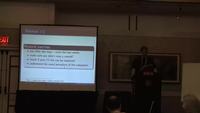
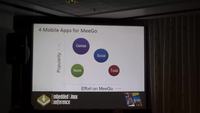
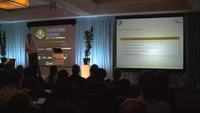
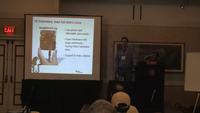
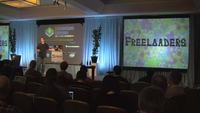
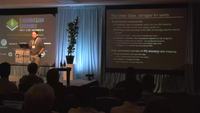
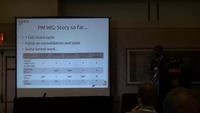
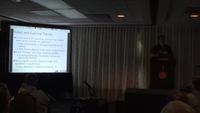
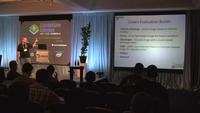
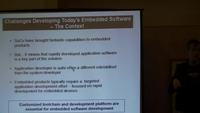
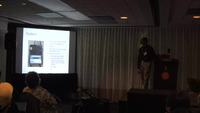
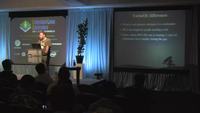
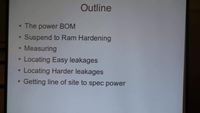
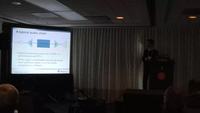
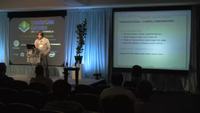
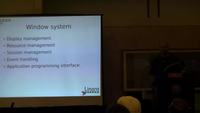
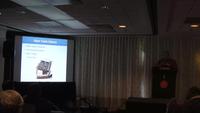
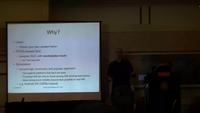
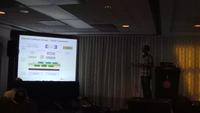
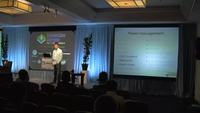
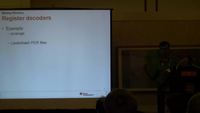
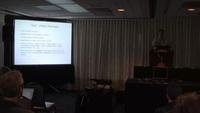
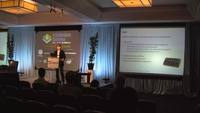
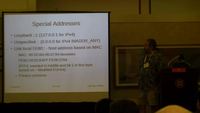
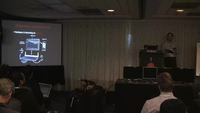
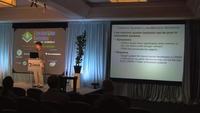
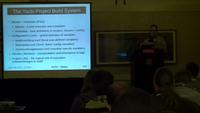
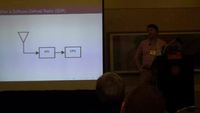
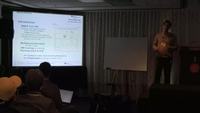
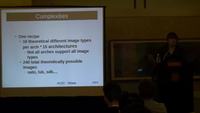
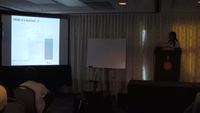
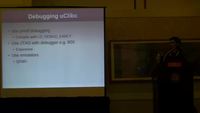
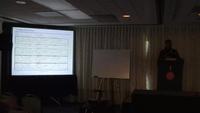

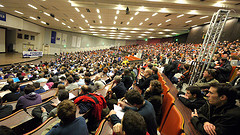
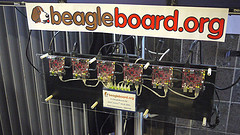
 The
The 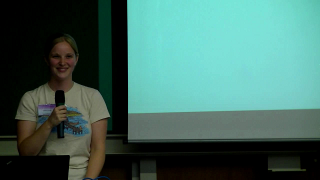


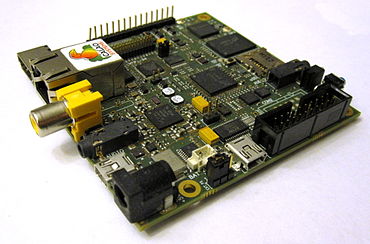 The success of the BeagleBoard platform, a low-cost development platform, that has greatly contributed to the success of Texas Instruments OMAP3 processor in the embedded Linux industry, seems to have inspired another processor manufacturer: ST Ericsson. They have recently unveiled
The success of the BeagleBoard platform, a low-cost development platform, that has greatly contributed to the success of Texas Instruments OMAP3 processor in the embedded Linux industry, seems to have inspired another processor manufacturer: ST Ericsson. They have recently unveiled